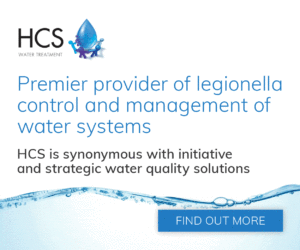Andrew Hallam, managing director for the security division at facilities management specialist Samsic UK, discusses the changing role of the security operative.
A fair few years have passed since I first started in the security industry, but I can still remember the first years vividly. I can only describe the conditions as Dickensian.
Security was a deregulated industry, with no standards to adhere to, and working conditions were extremely immature. My first week was a real eye-opener. At one of the first locations I went to, a security officer was warming his hands over an oil drum full of burning wood.
The traditional view of the ‘night watchman’ – a lone operative sat in a cabin all night with little but a torch to keep them company – may seem like a stereotype from television and film, but that stereotype was based on truth.
You had people providing the service from a caravan on a site or in their car, with little in terms of facilities. It wasn’t uncommon to see people doing 24 hour shifts and there wasn’t a lot of job satisfaction.
Thankfully things have changed for the better.
The passing of the Private Security Act in 2001 was a major catalyst for our industry. It brought in licensing and criminal record checks, which rooted out the bad apples and led to streamlining through a number of mergers.
We’ve also seen huge advancement in technology. The whole industry is innovating, trying to make things easier and safer for the staff on the ground, and we’re aiming to lead the way at Samsic.
Back in the day a security operative would be sitting there making sure no-one broke in. These days technology can protect a property, meaning that security staff do much more people-facing work. As technology has replaced this part of the job, the operative’s activities became a lot more tangible and the array of services has broadened.
Security teams carry out front of house services, reception, concierge, guard, meet and greet, post-room services, fire warden, health and safety, testing and much more.
One of our real concerns, however, is that the perception of a job in security has not advanced as quickly as the industry itself.
We want people to look at a role in security as an opportunity to learn a wide range of skills, advance in a career and achieve real job satisfaction.
We look for people who are multi-skilled, proactive with a can-do attitude, who are smart in appearance and ideally have a good command of English. Our security operatives need to create a good positive experience for the client, being the first point of contact. The job today is far more focused on communication, attention to detail and diligence.
Training is also vital. We encourage all our teams to take advantage of around 80 different ‘toolbox talks’ on a wide variety of topics. We also create a specific learning pathway for each of our clients’ sites, so that all operatives are trained in the same way.
The most important thing for me, however, is creating an atmosphere where people want to come to work, and where job satisfaction is high. We’ve done a lot around wellbeing, which is key to us.
Samsic is a family-run business with a strong culture, an ethical approach to how it does business, with employee engagement at the forefront of everything it does.
We’ve introduced a number of initiatives to help staff, such as Wagestream, which enables them to access their salaries in real time rather than waiting until the end of the month. We offer our MySamsic rewards scheme, and we’ve got rid of zero hour contracts to give job security.
We promote from within, we value our staff and we are trying to lead the industry in transforming the perception of a security operative.






















































































